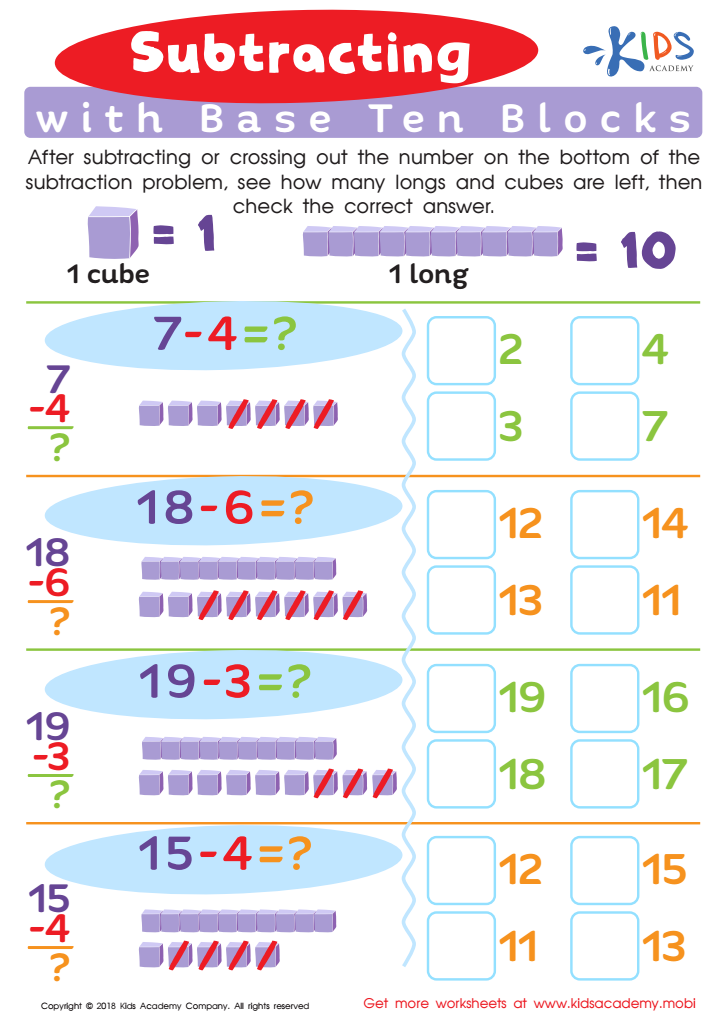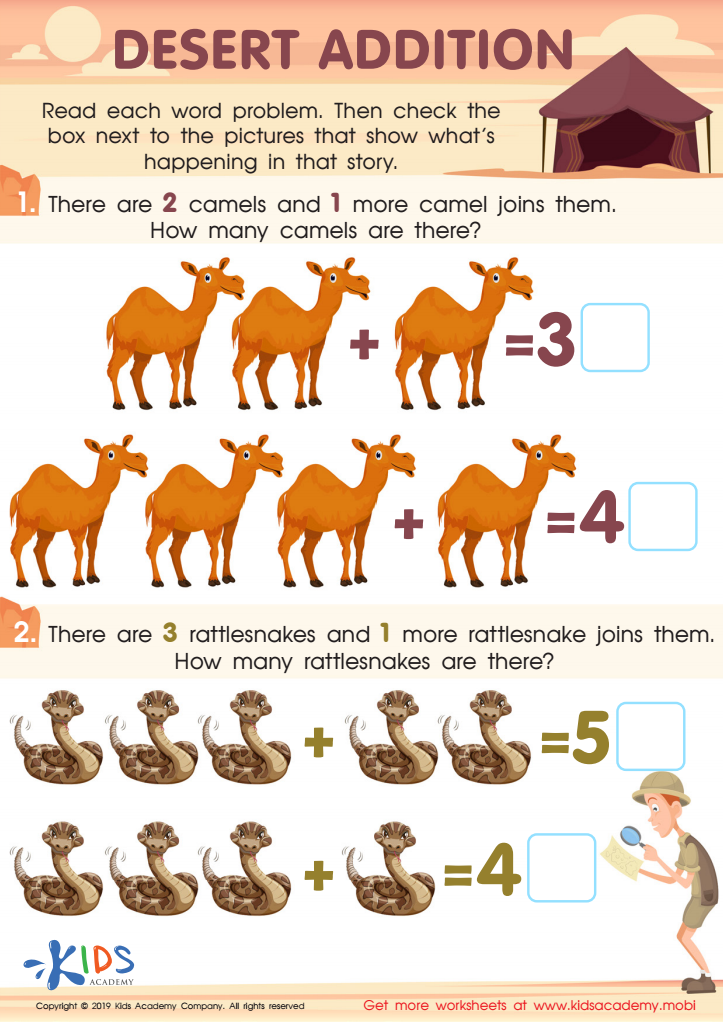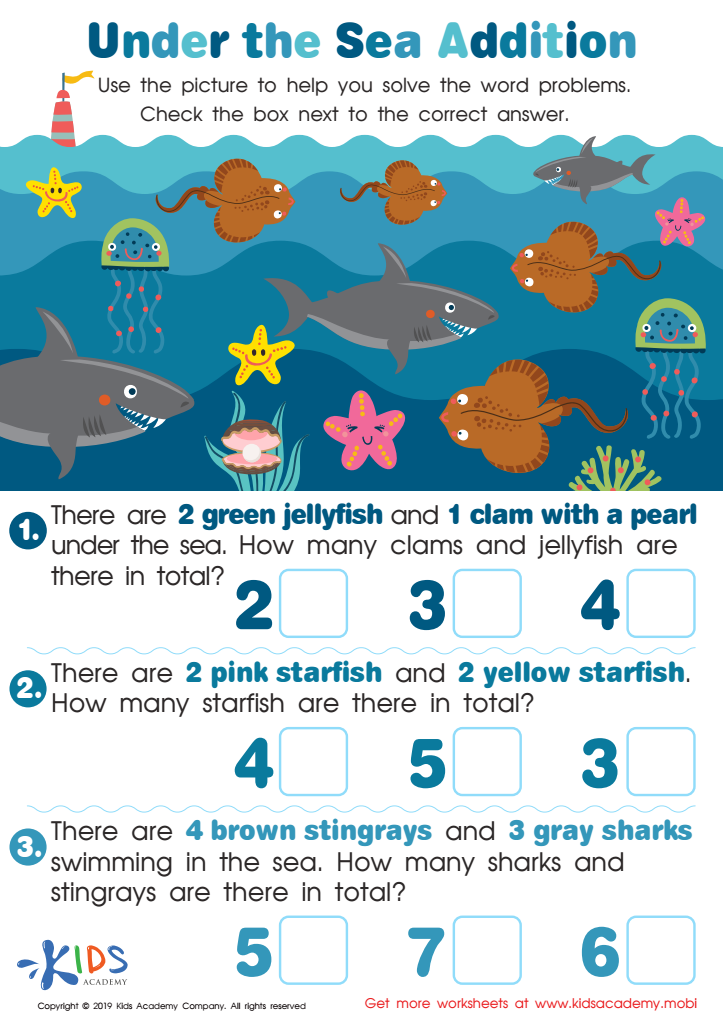Improving counting skills Easy Addition & Subtraction Worksheets for Ages 3-8
3 filtered results
-
From - To
Unlock your child's potential with our Easy Addition & Subtraction Worksheets for Ages 3-8! Specially curated to enhance counting skills, these engaging worksheets make early math concepts fun and accessible. Perfect for home or classroom use, they offer age-appropriate exercises designed to build confidence and mastery in basic arithmetic. Each activity combines colorful illustrations with kid-friendly tasks, fostering a love for learning. Our worksheets focus on gradual skill advancement, ensuring young learners effortlessly develop their addition and subtraction abilities. Start your child’s math journey on the right foot—explore our collection and watch their counting skills soar!


Subtracting With Base 10 Blocks Worksheet


Desert Addition Worksheet


Under the Sea Addition Worksheet
Parents and teachers should place significant importance on improving counting skills, and basic addition and subtraction for children ages 3-8, as these foundational math skills are crucial for their overall cognitive development and future academic success. During these early years, children's brains are exceptionally receptive to learning and absorbing new information. Introducing them to counting, and basic arithmetic tasks like addition and subtraction, helps develop their number sense—a foundational understanding of numbers and their relationships.
Numerical fluency is not only fundamental to excelling in mathematics but also enhances problem-solving abilities, logical thinking, and reasoning skills. These early math skills translate into everyday tasks, such as recognizing patterns, measuring, and Shopping. They also contribute to a child's ability to understand more complex math concepts later in life, laying the groundwork for success in school subjects like science and technology.
Furthermore, engaging in fun, hands-on activities and games that involve counting, adding, and subtracting can foster a positive attitude towards mathematics. Positive early experiences can help reduce math anxiety, a common issue that can impact confidence and academic performance in the subject. Investing time and effort in improving these skills in young children is, therefore, a vital step in setting them on a path toward lifelong learning and intellectual empowerment.
 Assign to My Students
Assign to My Students





















